Blog Posts
-
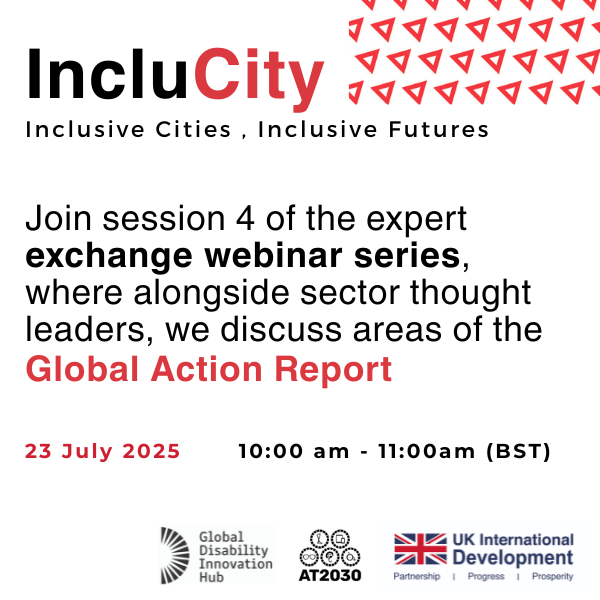
An Inclusive City is a Resilient City: A Case for Simultaneously Localising Disability Inclusion and Climate Resilience
Bala NagendranJuly 10, 2025GlobalAn inclusive city is also a resilient city. It is necessary to break the silos between sectors and ensure inclusion and resilience are designed hand-in-hand (GDI Hub, 2024).” The four-year inclusive cities research conducted by GDI Hub across six global cities has informed us that a city co-designed with all urban residents and stakeholders, including people with disabilities, will adapt and evolve with long-term resilience. From this context, GDI Hub adopts climate resilience and innovation as integral components for building inclusive cities and are exploring pathways to simultaneously implement inclusive design and climate action at the local level.
-
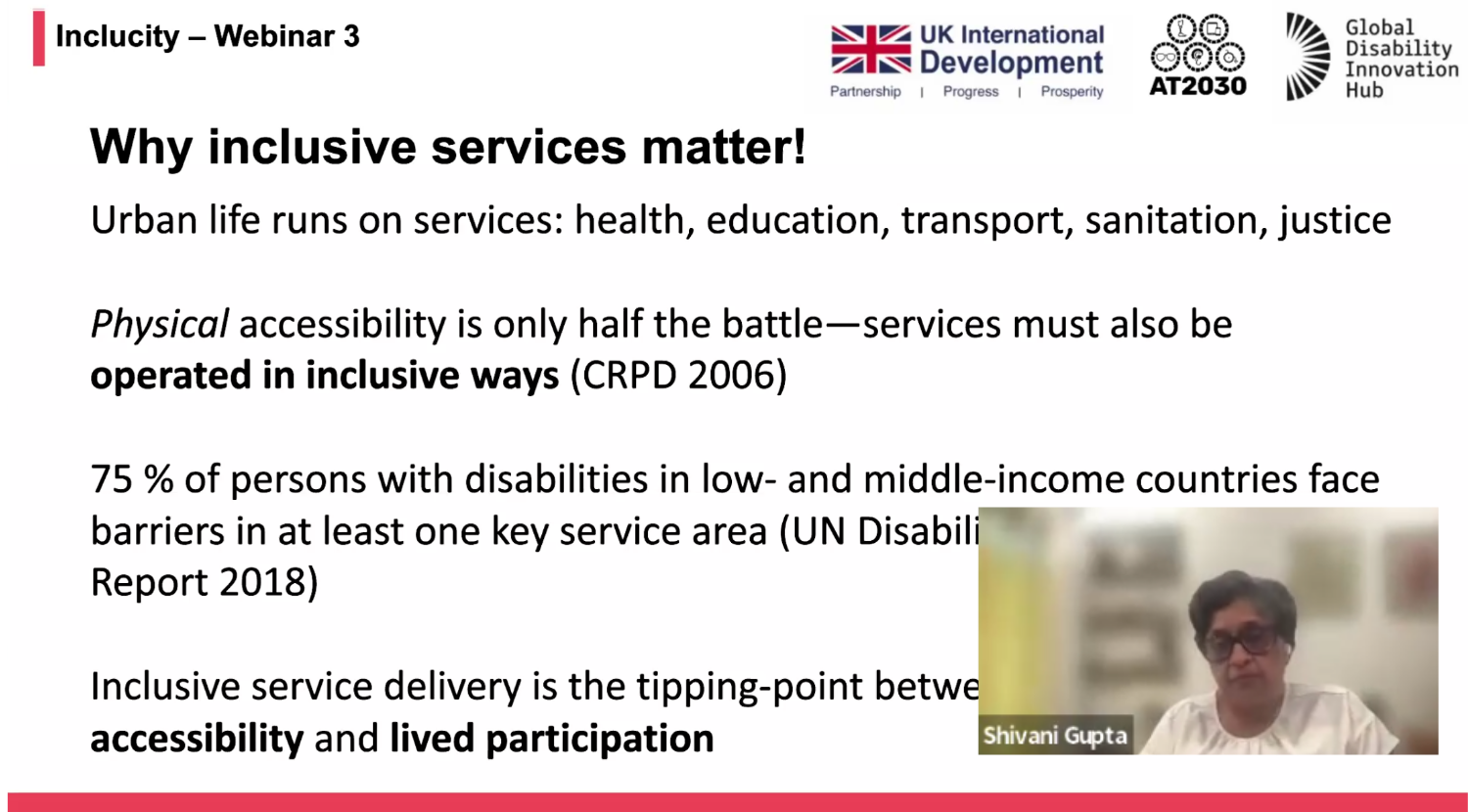
Making Urban Services Inclusive: Voices from the IncluCITY Webinar Series
Harrison KamauJuly 7, 2025In a world where cities are rapidly expanding, the question of who gets to fully participate in urban life is more urgent than ever. For persons with disabilities, access to essential services—such as healthcare, transport, education, and sanitation—remains a daily challenge. The third webinar in the IncluCITY series, hosted by the Global Disability Innovation Hub (GDI Hub), tackled this issue with clarity and conviction. Titled “Making Services Inclusive,” the session brought together global experts, advocates, and individuals with lived experience to explore how cities can be designed to serve everyone.
-
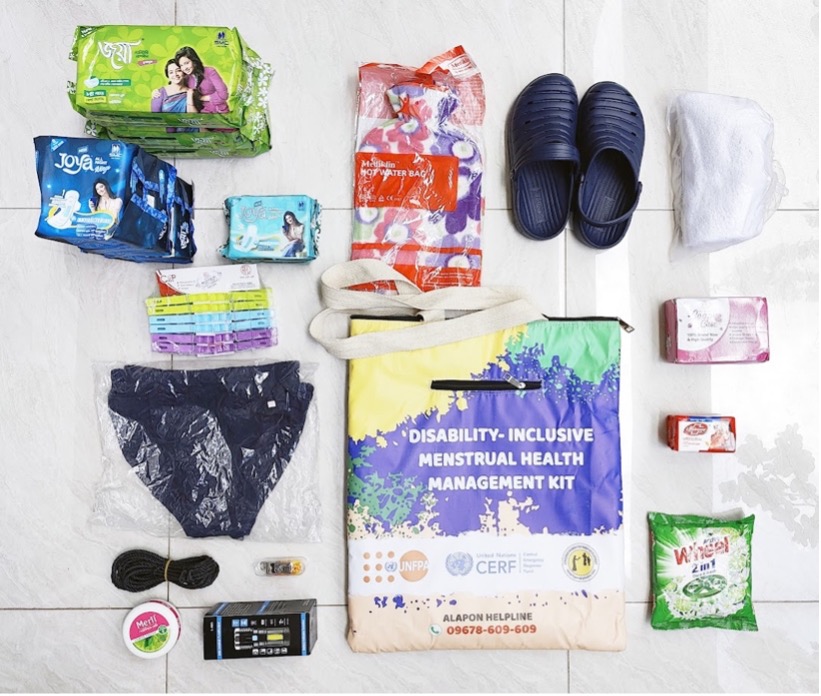
Restoring Dignity: Crafting Inclusive Humanitarian Support in the Asia-Pacific
Dr Dilisha Patel, Nisanart Yeamkhong, Roos MiddlekoopJune 30, 2025GlobalThe Asia-Pacific faces increasingly frequent and severe humanitarian crises. During these emergencies, women and girls, especially those with disabilities, are among the most vulnerable. Disasters force them to (over)crowded shelters that are often not easily accessible, nor safe. Many women and girls experience gender-based violence (GBV) and often cannot access lifesaving health and protection services. Persons with disabilities also face discrimination and mobility issues that impact other areas (e.g. managing menstrual health in small or inaccessible washrooms), compromising their dignity and physical and mental wellbeing.
-
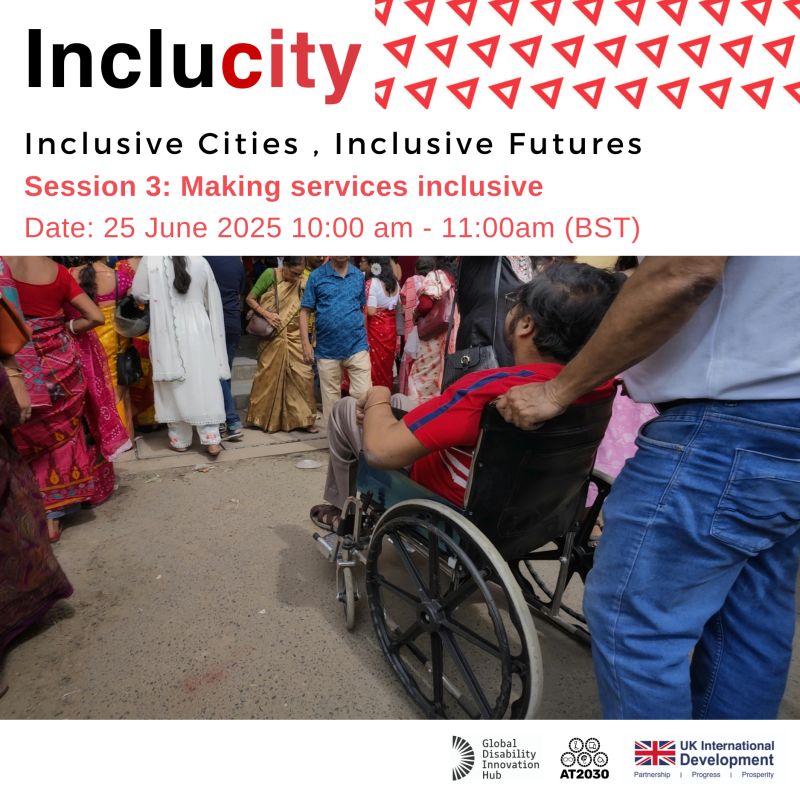
Inclusive services: a cornerstone for inclusive cities
Shivani Gupta, Annamae Muldowney, Bala NagendranJune 23, 2025GlobalAs cities evolve, so too must the services that sustain them. From healthcare and education to transport and sanitation, urban services form the lifeblood of everyday life. While making the physical environment accessible in the city is critical, so is ensuring that all basic services are responsive to the needs of persons with disabilities to enable them to function independently (CRPD 2006). For instance, while a court may be completely accessible, unless specific steps are taken to make the proceedings accessible to persons with disabilities, it would not be inclusive. This may include having a sign language interpreter available if a deaf person seeks legislative services or the legal document in accessible formats. However, in reality, services remain fragmented, inaccessible, or out of reach for most persons with disabilities. This challenge is explored in the third webinar IncluCity series: Making Services Inclusive.
-
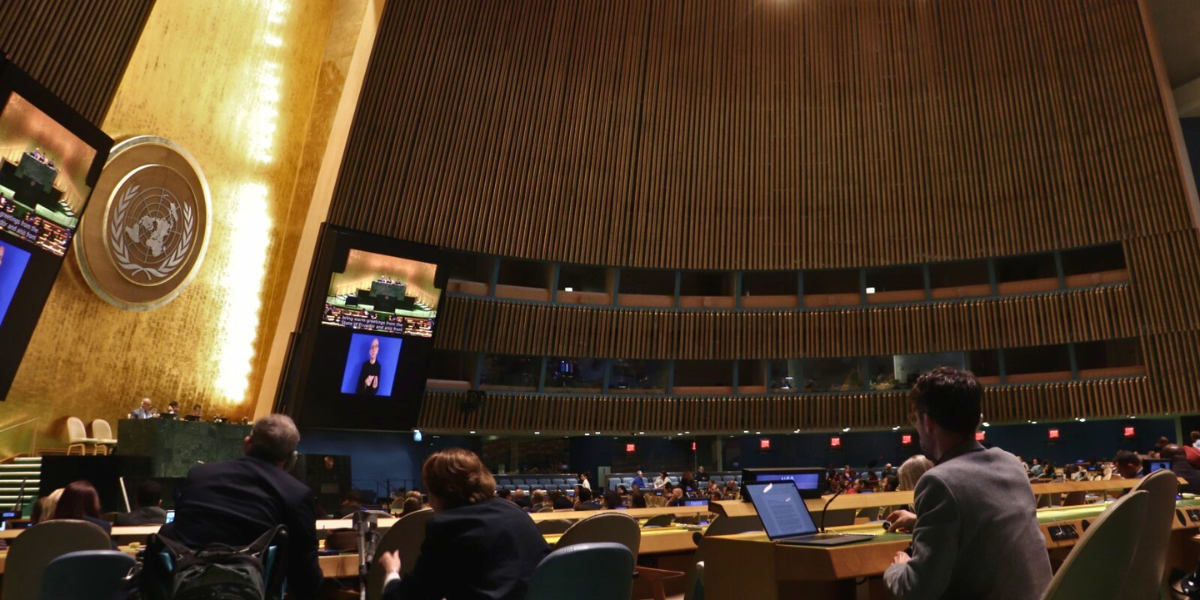
Reflections from COSP18
Sophie GlickmanJune 19, 2025Last week, the Global Disability Innovation Hub (GDI Hub) joined governments, civil society organisations, organisations of persons with disabilities (OPD), researchers, and private sector partners at the United Nations Headquarters in New York for the 18th Session of the Conference of States Parties to the Convention on the Rights of Persons with Disabilities (COSP18).
-
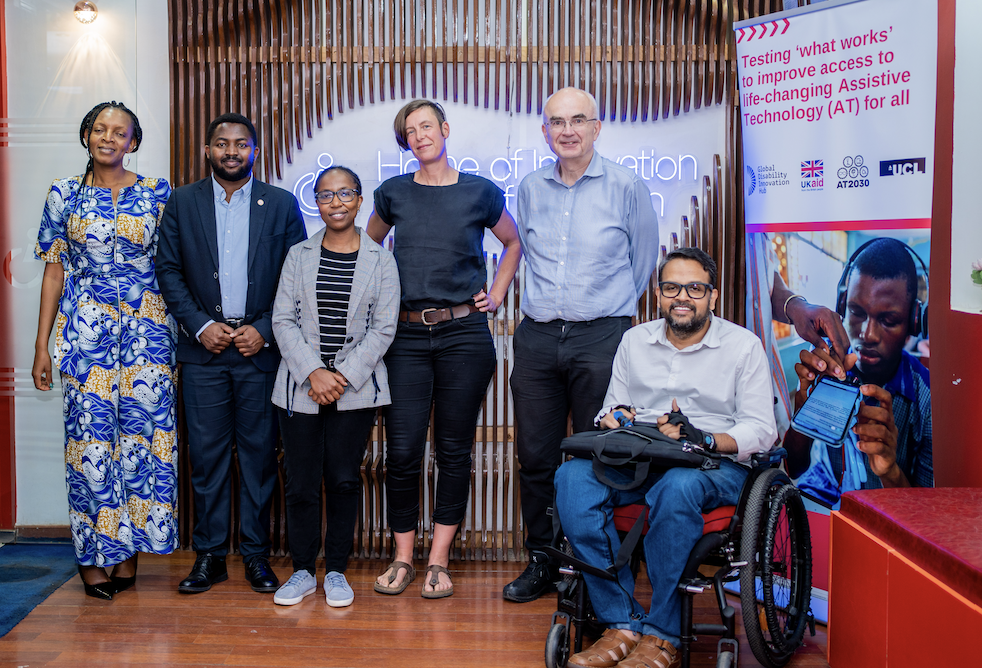
Landmark Gathering to Accelerate Assistive Technology Innovation Across Africa
Harrison KamauJune 13, 2025KenyaAt the sidelines of Inclusove Africa conference, a new era for Africa’s assistive technology (AT) ecosystem began began at the “Accelerating Impact: Shaping the Next Wave of Assistive Technology Innovation in Africa
-
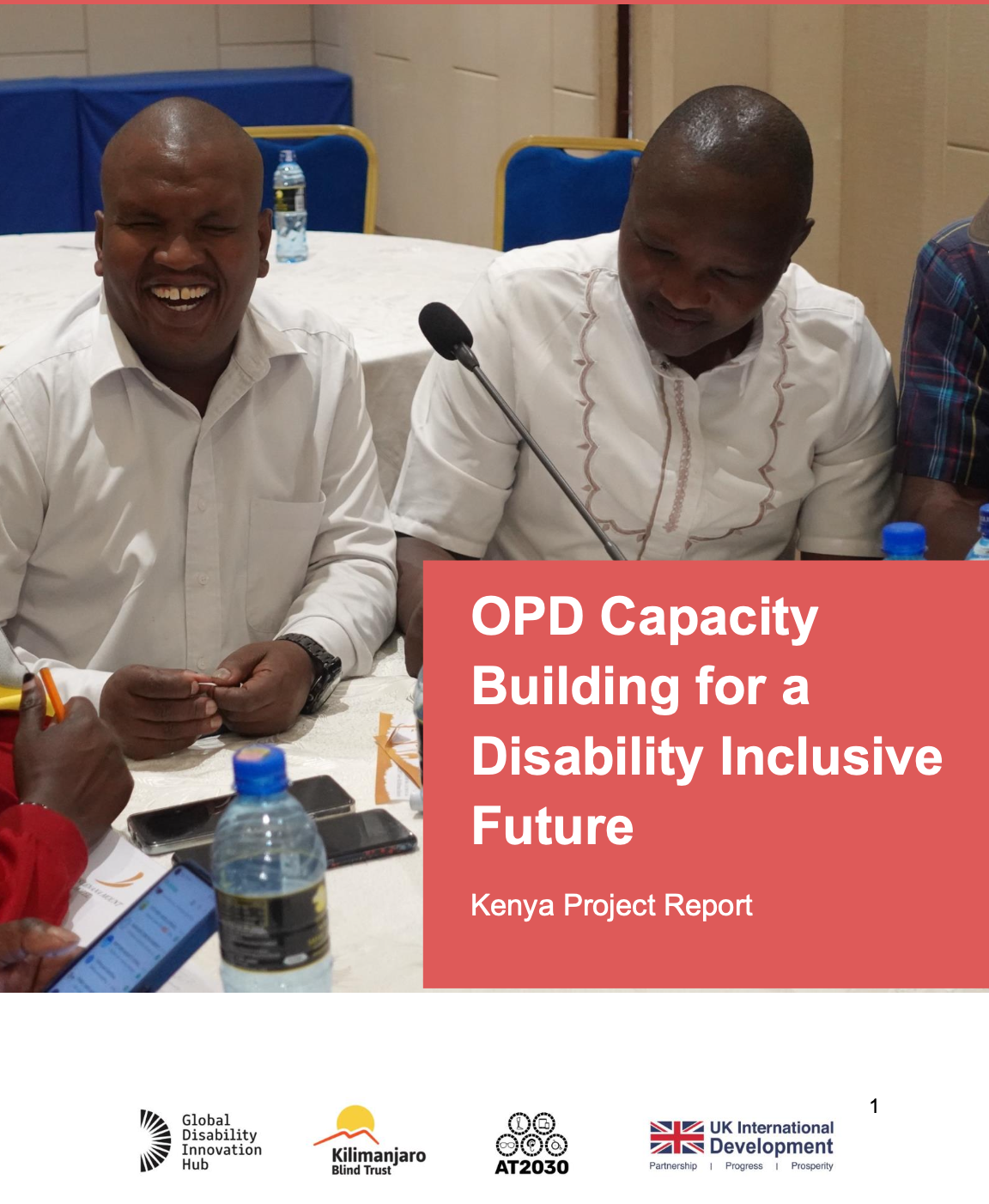
Empowering OPDs to Lead Change
Harrison KamauJune 3, 2025As part of the Global Disability Innovation Hub’s UK aid-funded AT2030 programme, a regional initiative has been rolled out to deepen understanding of OPD needs and priorities in Kenya and Pakistan. In Kenya, this work is led by Kilimanjaro Blind Trust Africa (KBTA), and in Pakistan, by the Special Talent Exchange Program (STEP). These efforts fall under the “Include” cluster of AT2030, focusing on leadership and engagement to drive systemic change.
-
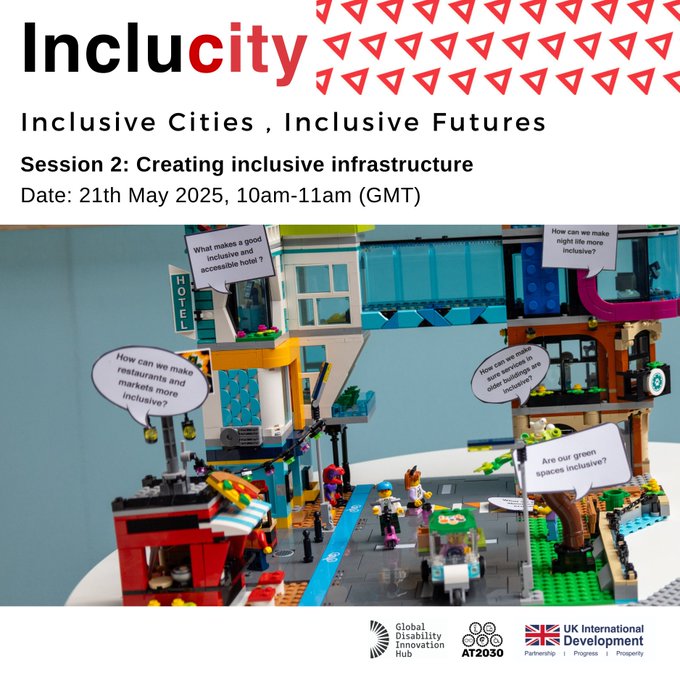
Webinar 2: Creating Inclusive Infrastructure
Bala NagendranMay 30, 2025GlobalWe look back at the second session—Creating Inclusive Infrastructure of the four-part series reinforced this message from the lens of making everyday spaces truly inclusive. Annamae Muldowney from GDI Hub’s Inclusive Design team situated the discussion, drawing insights from both the Global Comparison Report and Global Action Report.
-
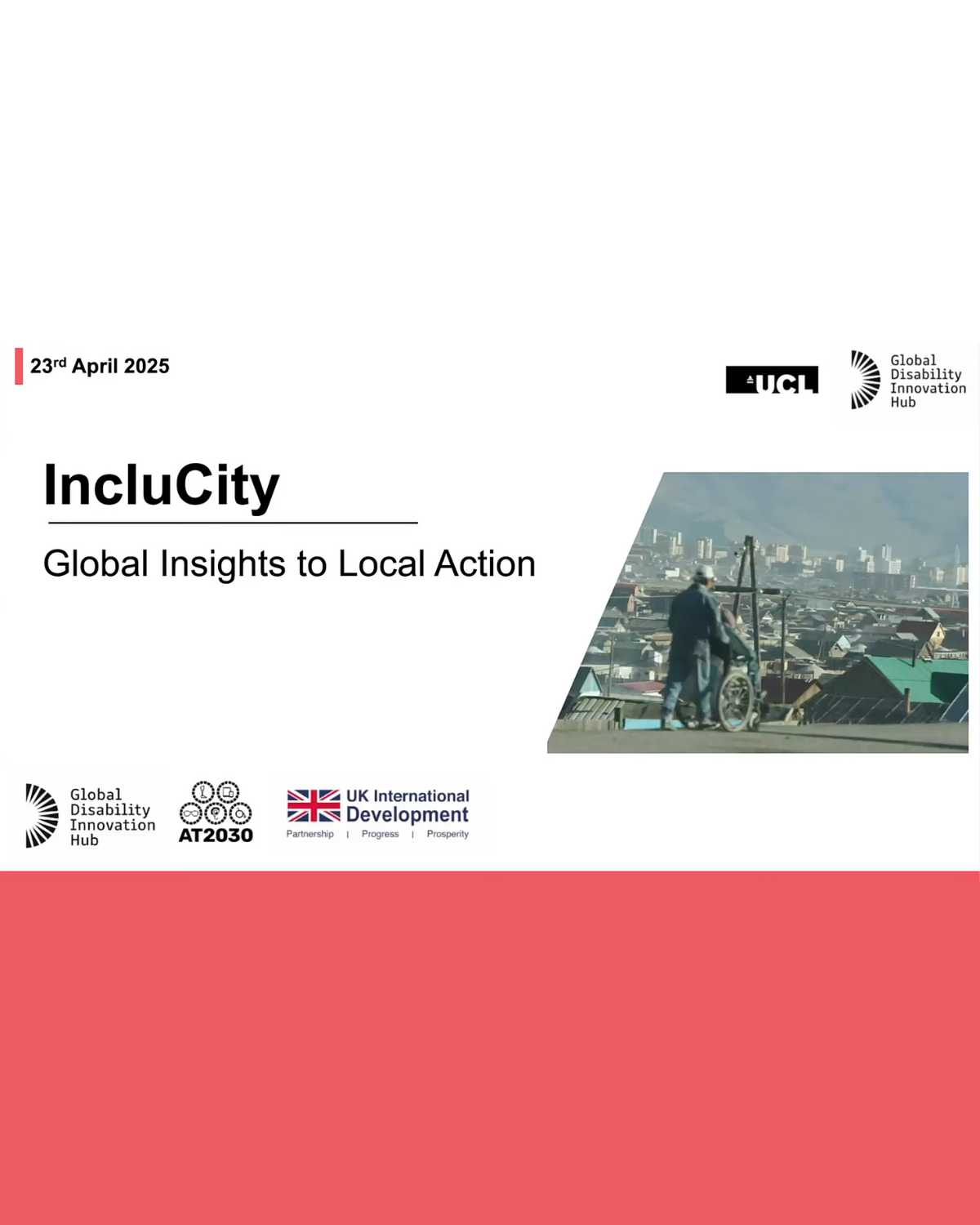
IncluCity: Webinar 1: Global Insights to Local Action
Annamae MuldowneyApril 23, 2025The first session in our new IncluCity webinar series – Global Insights to Local Action – set the tone for what will be an ongoing dialogue between research, local expertise, and lived experience. Designed to unpack the findings of our Global Action Report, this series brings together key voices from around the world to explore how cities can transform themselves into more accessible and inclusive spaces for all.
-
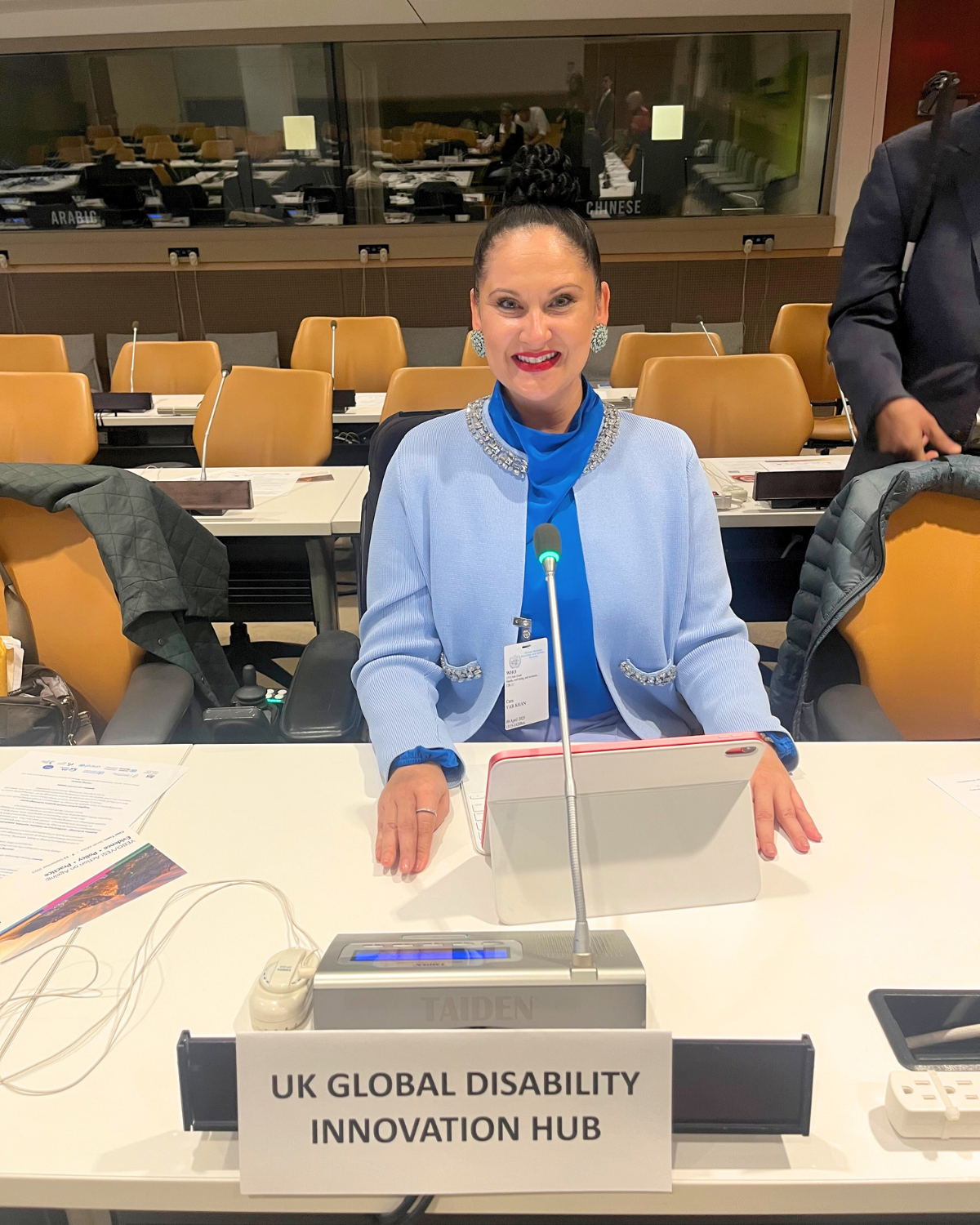
GDI Hub's Contribution at CPD58: Advancing Gender-Inclusive Assistive Technology
Global Disability Innovation HubApril 16, 2025At the United Nations Headquarters in New York, during the Commission on Population and Development's Fifty-Eighth Session (CPD58), the GDI Hub participated in a side event focused on health, well-being, and inclusion through equitable access to assistive technology (AT), hosted by WHO and alongside the Foreign, Commonwealth and Development Office, the International Society of Prosthetics and Orthotics, UNICEF and the National Senior Citizens Centre. This blog explores what was discussed at the event, why it matters, and how the GDI Hub is helping drive change in this space.
-
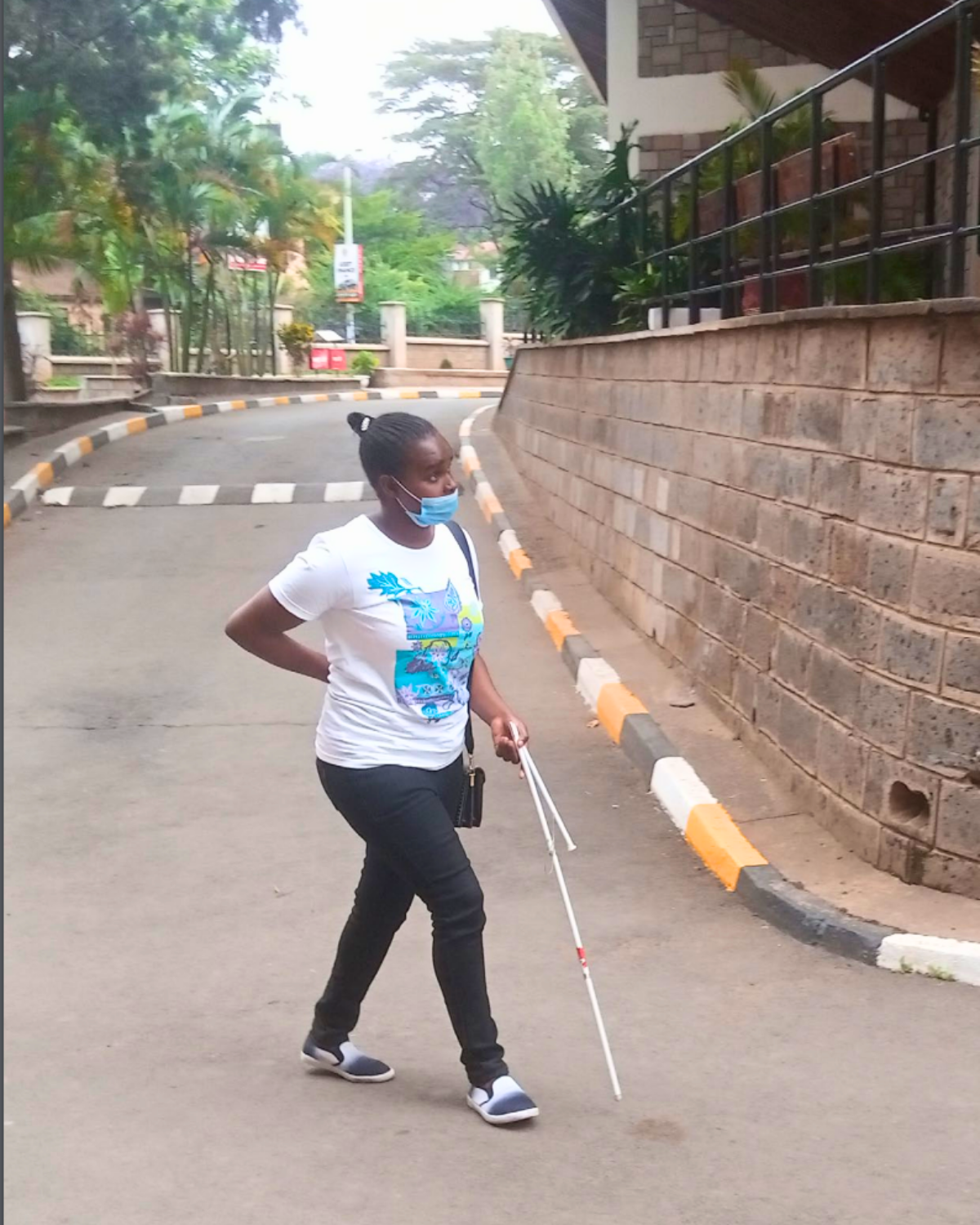
From Global Insight to Local Action
Shivani GuptaApril 14, 2025This blog presents the global insights gathered from four years of research undertaken by the Global Disability Innovation Hub, funded by UK International Development under the AT2030 programme. The overarching research question was, ‘What is the current state of inclusive and accessible environments and infrastructure in lower-and-middle-income countries (LMICs), and what is the role of inclusive design in creating an enabling environment for persons with disabilities?’
-
Beyond the Track
Harrison KamauMarch 31, 2025FranceWith Paris 2024 still fresh in our memories and the road to Los Angeles 2028 ahead, we asked leaders from the Global Disability Innovation Hub and key figures across the disability movement on what the Paralympics means to them. Their answers show how the Games influence everything from city planning to space exploration.
-
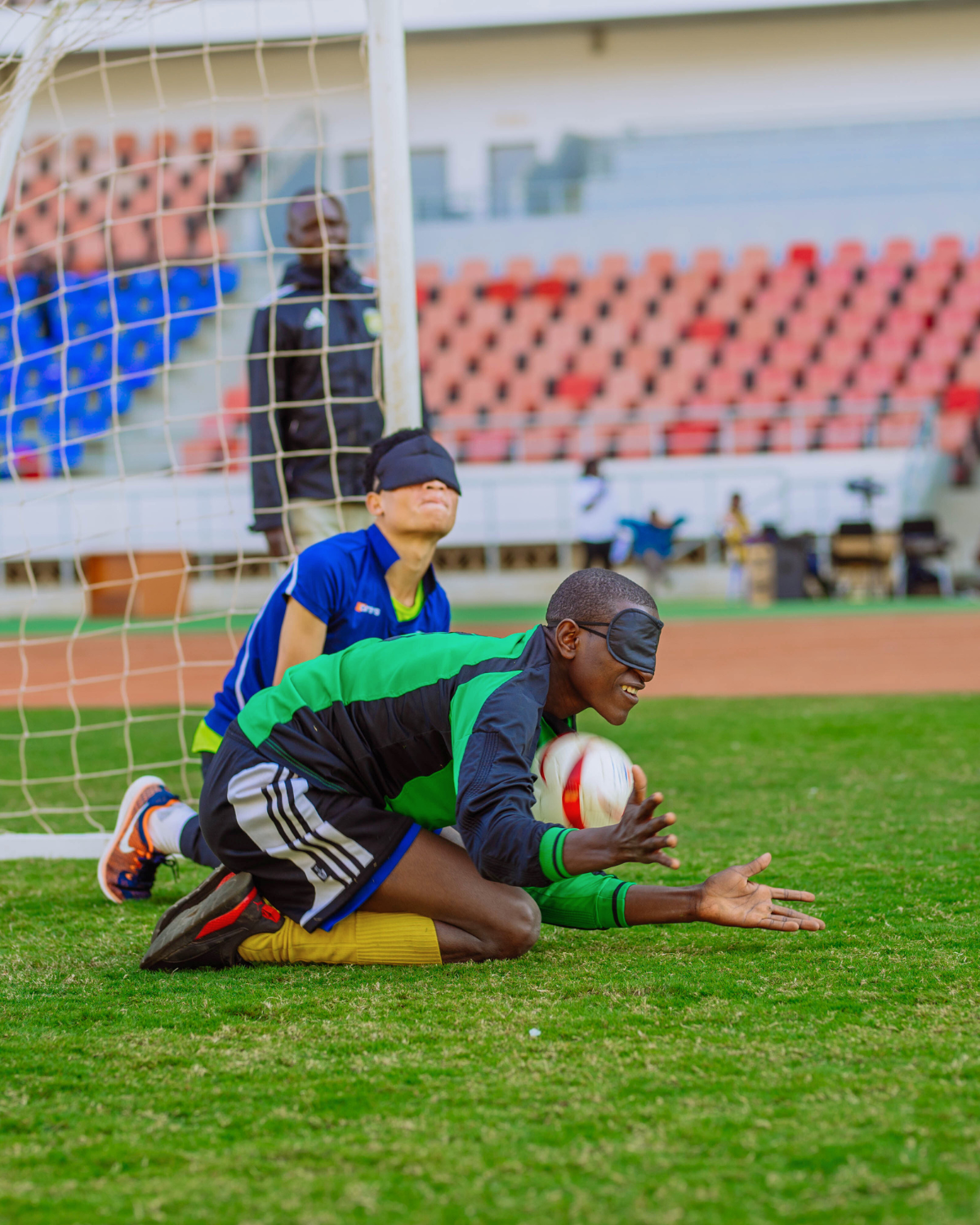
Can The Commercial Be Political?
Jennie Wong, Dr. Jessica Noske Turner (LU London)March 31, 2025In the world of sports, the blending of social change with commercial interests has always been a complex dance. In our current project, Para Sport Against Stigma (PSAS), we navigated this grey zone between social change and commercial interests, striving to use the platform of Para sports to drive disability inclusion in Sub-Saharan Africa while grappling with the realities of commercial pressures. The question that lingers throughout the project is, can the commercial ever truly be political?
-
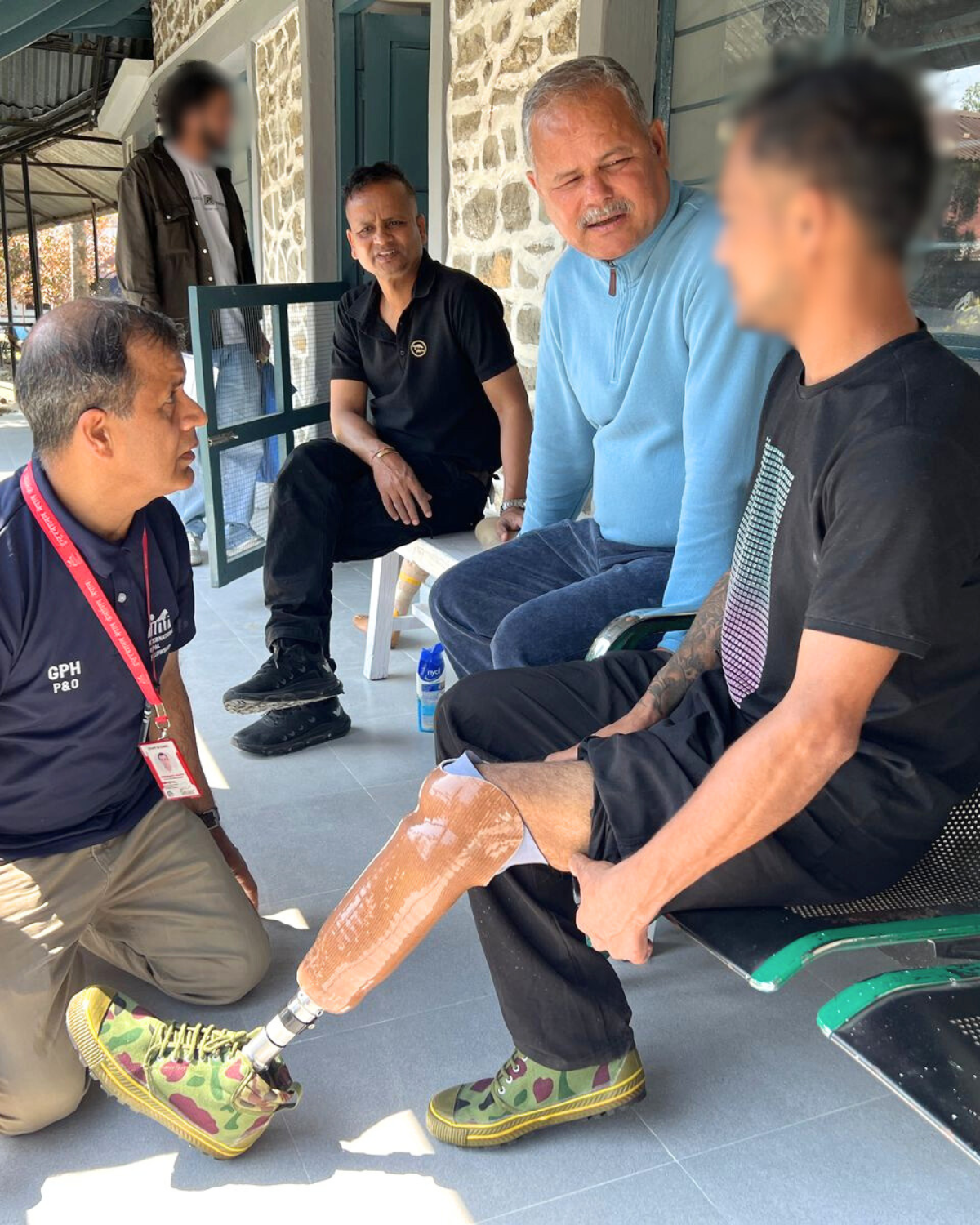
Pioneering Prosthetic Innovation in Nepal: Testing silicone locking liner prosthesis
Global Disability Innovation HubMarch 26, 2025NepalOur new pilot study at Green Pastures Hospital, Nepal, explores advanced prosthetics for people with limb loss and leprosy. Led by GDI Hub with INF and Operation Namaste, it tests a locally made silicone locking liner to improve care in low-resource settings. Experts and patients joined for research, workshops, and discussions to assess its impact.
-
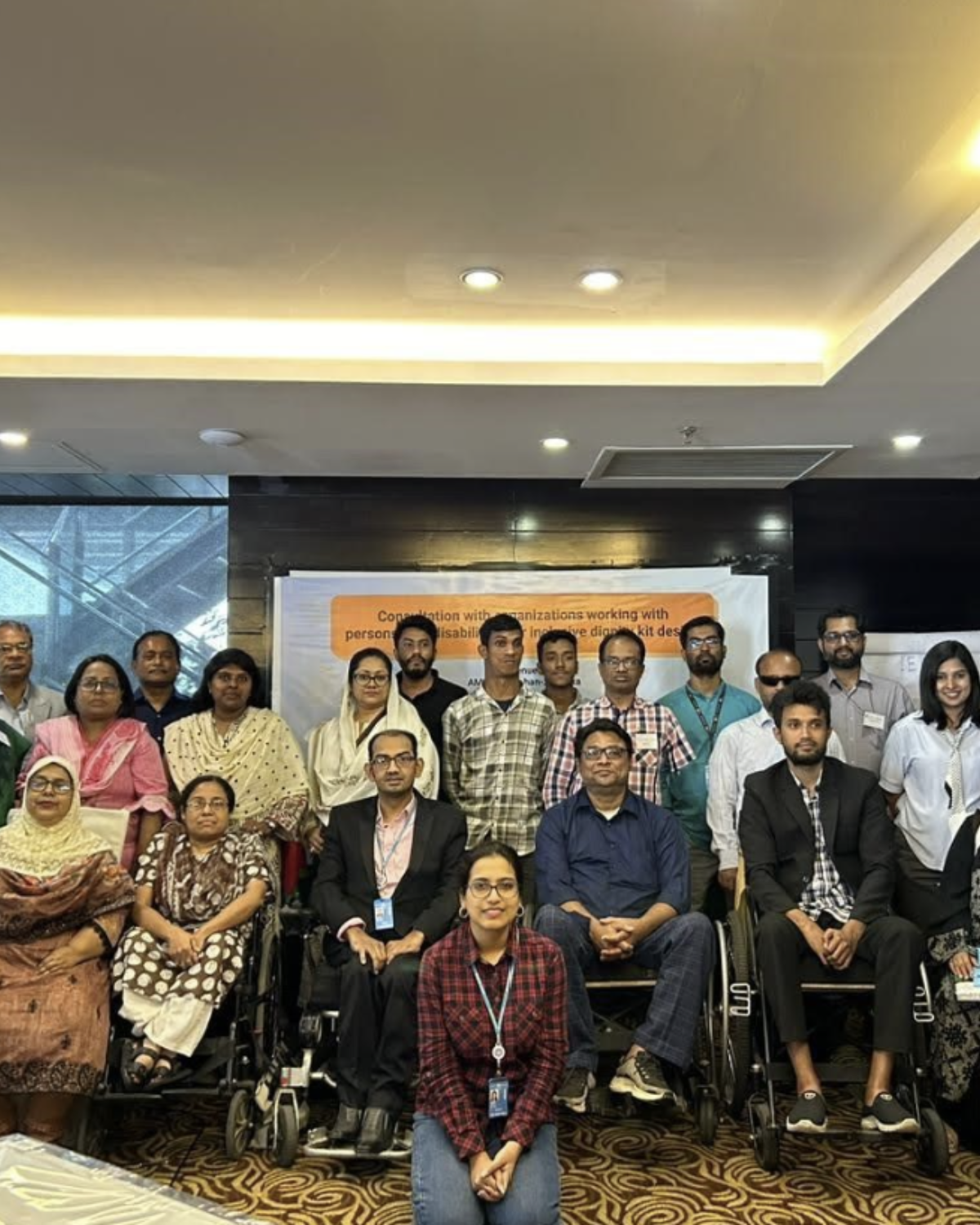
Accelerate Action: International Women’s Day 2025
Josie WestMarch 8, 2025This International Women’s Day (IWD) 2025, the theme Accelerate Action calls for urgent change. IWD point out that full gender parity is not predicted until 2158. This highlights the danger of many women and girls being left behind if current trends go unchallenged. People with disabilities experience heightened vulnerability due to the compounded effects of intersectional marginalisation. Despite making up 16% of the global population, with 80% being of working age, only one-third of people with disabilities are employed.
-
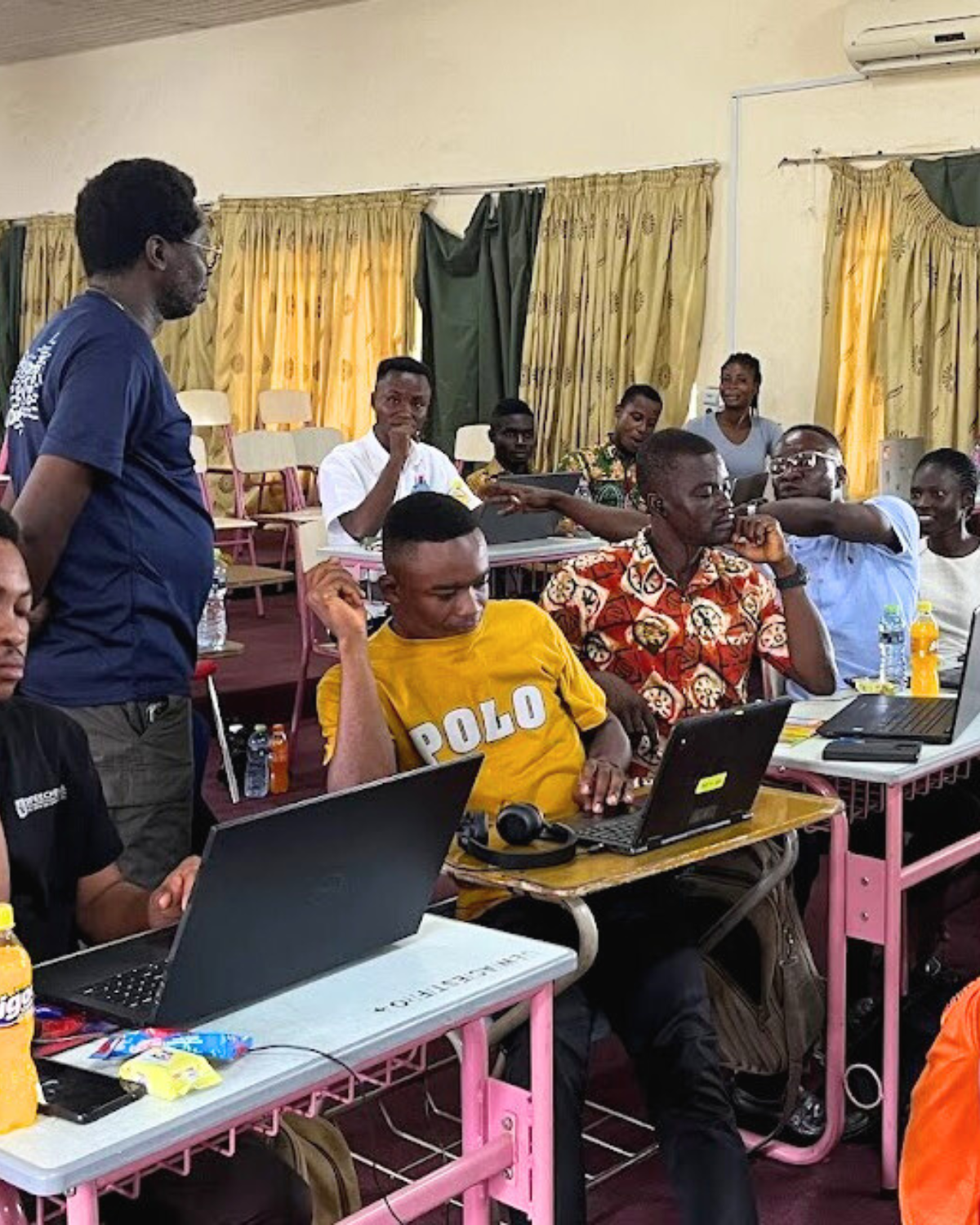
Can Automated Speech Recognition improve the lives of people with communication disabilities in Ghana?
Catherine Holloway, Giulia BarbareschiJan. 22, 2025GhanaIn Ghana, people who have difficulties with speech articulation face significant barriers in interacting with others, often leading to social isolation and reduced participation in everyday activities. As part of the AT2030 project, funded by FCDO, Global Disability Innovation Hub (GDI Hub) set out to evaluate the first freely available Android-based application for automated speech recognition , Google Project Relate, in Ghana.
-
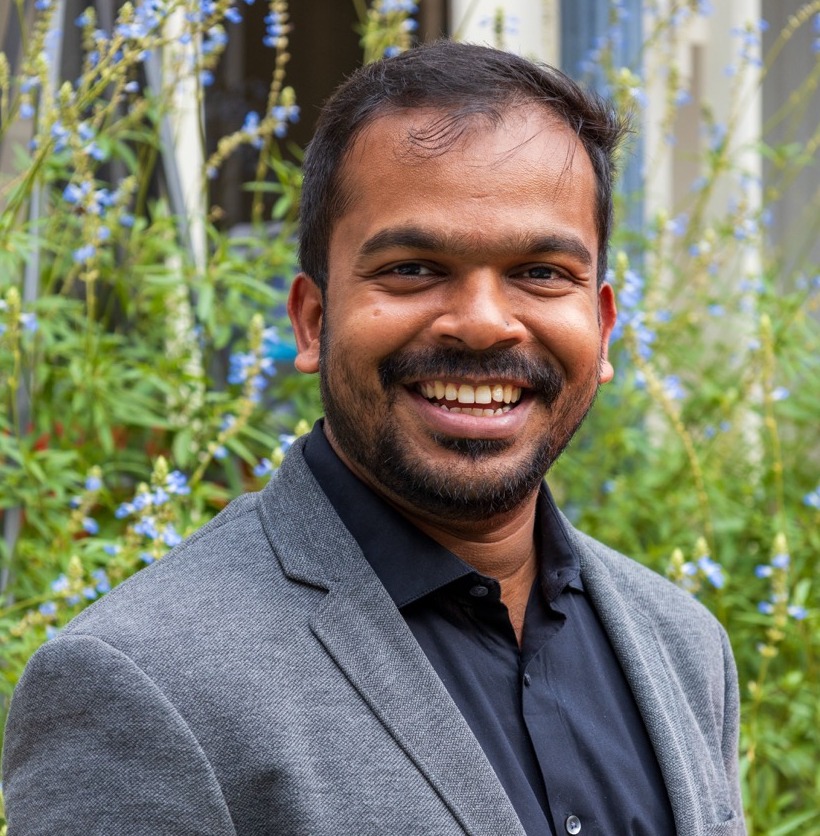
Paris 2024 to Baku COP29: Sports, Disability Inclusion, and Climate Action
Global Disability Innovation HubNov. 18, 2024From the discussions around this year’s becoming the ‘greenest ever games’ to the extreme heat dome hitting Western Europe, Paris 2024 made headlines for many things ‘climate.’ This blog extends this climate narrative and highlights the power of sports to consolidate voices and accelerate inclusive climate action, as we anticipate higher ambitions and bolder commitments from the 29th United Nations Climate Change Conference (COP 29).
-
Reflections from World Urban Forum 12 Cairo, Egypt
Shivani GuptaNov. 12, 2024EgyptFrom my perspective, the most spectacular part of the event was the first ever #Accessibility2030 pavilion—a space in the Urban Expo owned by the disability stakeholders to showcase the gaps, best practices and importance of disability inclusion in cities.
-

Innovative Assistive Technology as lower cost way to bridge gaps while Inclusive infrastructure is developed: Just for the games or part of a long-term plan? - by Annamae Muldowney - GDI Hub's Inclusive Design Assistant
Annamae MuldowneySept. 20, 2024FranceDuring the Paris 2024 Paralympic Games, accessibility at sporting venues improved, but navigating the city remained challenging for people with disabilities due to an outdated metro system, with only 29 out of 300 stations wheelchair-accessible. Temporary measures, such as minibuses and a journey-planning app, helped visitors but highlighted the need for long-term infrastructure upgrades, which could take decades and significant investment. Overall, the Games highlighted both the challenges and opportunities in improving urban accessibility for people with disabilities.
-
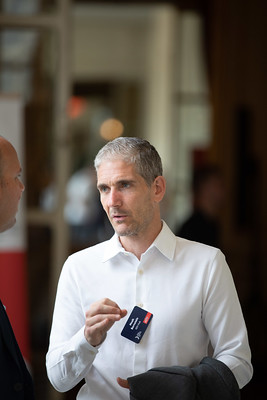
What you water grows: how Brazil thrived at the Paralympics - by Noah Bernstein - COO at GDI Hub
Noah BernsteinSept. 18, 2024FranceAt the Paris 2024 Paralympics, Brazil excelled. But how did they become one of the best performing countries in the world at para sport? Brazil’s success shows change is possible. It also highlights that change won’t happen by itself. Brazil’s story of success contrasts sharply with rich countries like Japan and Australia that typically fare well at the Olympics but lag at the Paralympics due to reported underinvestment and much smaller proportional delegations. We can only hope other governments and decision-makers take note on how to create lasting, sustainable change that brings much more than medals.
Next Page